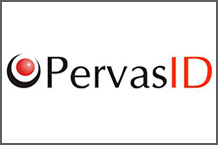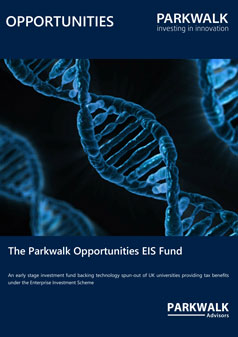Dear ,
The fundamental research was carried out to address the challenges involved with item tracking using RFID in the Cambridge University Engineering Department as part of TINA (The INtelligent Airport) project funded by the UK Engineering and Physical Sciences Research Council. Additional funding was also obtained from Boeing for a related technology project. Two patents were filed by the Cambridge University technology transfer office (Cambridge Enterprise) in April 2010, covering wide area tag detection and precise location of RFID tags. The innovation has been recognised through The UK ICT Pioneers of Connected World 2011 and The Royal Academy of Engineering ERA Foundation Entrepreneurs Award 2011. PervasID was founded in 2011 to commercialise the technology by Dr Sabesan Sithamparanathan, Dr Michael Crisp and Professor Ian White and Professor Richard Penty. PervasID has developed a long-range passive Radio Frequency Identification (RFID) tracking technology which substantially outperforms current passive RFID technologies. Crucially, it allows low-cost commodity RFID tags to be utilised in long range applications achieving accuracy until now only achievable using more expensive active RFID.
The Technology
Radio Frequency Identification(RFID) is the use of radio signal to detect information stored on a tag attached to an object (e.g. an item of clothing). There are two types of RFID systems - passive and active - with the key difference between the two being the tag; both passive and active tags contain an antenna and a chip, but active RFID tags also contain a power source, allowing greater detection range, but increasing the cost of each tag substantially. PervasID is focusing on passive RFID systems.
An RFID system has three distinct parts: tags, a receiving antenna and a reader which both transmits and receives. The RFID reader emits a radio signal which is picked up, modified, and then retransmitted by the tag. The retransmitted signal, which contains information specific to that tag, can be detected and “read” by the original transmitting reader.
To detect passive RFID-tagged objects attached within a specific area (e.g. a department store), an array of readers/antennas is utilised. In conventional RFID systems, due to the relatively weak reflected signal from the tag, the reliable detection range has been restricted to < 3m. For ranges greater than this, “null spots” occur. Null spots are areas where no reflected signal, therefore no tagged object can be detected. To overcome these difficulties, RFID installations so far have relied on fixed portal readers at pinch points, or hand held readers requiring manual intervention. PervasID has developed a disruptive fixed, passive UHF RFID reader technology that enables highly reliable reading of standard off the shelf passive UHF RFID tags using a fixed infrastructure over wide areas. There is also the potential to provide location information for the tags within the wide area read zone. The PervasID technology removes the restriction on read range, giving near 100% detection over areas of up to 20m x 20m, and is able to scale to much larger areas.
IP
The company will have an exclusive license to patents filed in 2010 in the areas of both wide range tag detection and precise location of RFID tags.
The Market Opportunity
There are many potential applications of RFID tracking technology. The company is already pursuing opportunities in the following areas
• Item-level tracking – e.g. apparel tracking, estimated to use 4.6bn tags in 2016
• Asset tracking – e.g. tracking tools and components
• Security – e.g. tracking cash boxes in vault and providing real time inventory monitoring
• Logistics – e.g. tracking beer and wine cases
A market study published by IDTechEx predicted the RFID reader market is expected to grow from a $2.5bn market in 2015 to a $7.5bn market in 2020. PervasID has estimated its addressable market in Europe and Asia to be worth $833m by 2020.
The Team
Since its founding in 2011, PervasID has been funded through grants and paid customer trials of the technology with a team of four academics founders which now comprise a CEO, CFO and advisors. Following this successful funding round to allow a rapid ramp up of PervasID to fulfil the current opportunities, the team is looking to expand, both technically and commercially. The Company has appointed Bob Pettigrew as Interim Chairman who was founder and executive Chairman of scientific generics (now renamed Sagentia) and has served/serves on the board of several technology companies.
The Investment Case
Although PervasID is an early-stage company, we are impressed with the degree and nature of the commercial engagement already underway. We are also attracted to the company’s level of ambition, with a vision to become a leader in low-cost accurate wireless tracking & sensing and also create a sustainable business through developing a pipeline of next-generation products. The Company considers that the ultimate exit strategy would be through an IPO or trade sale.


